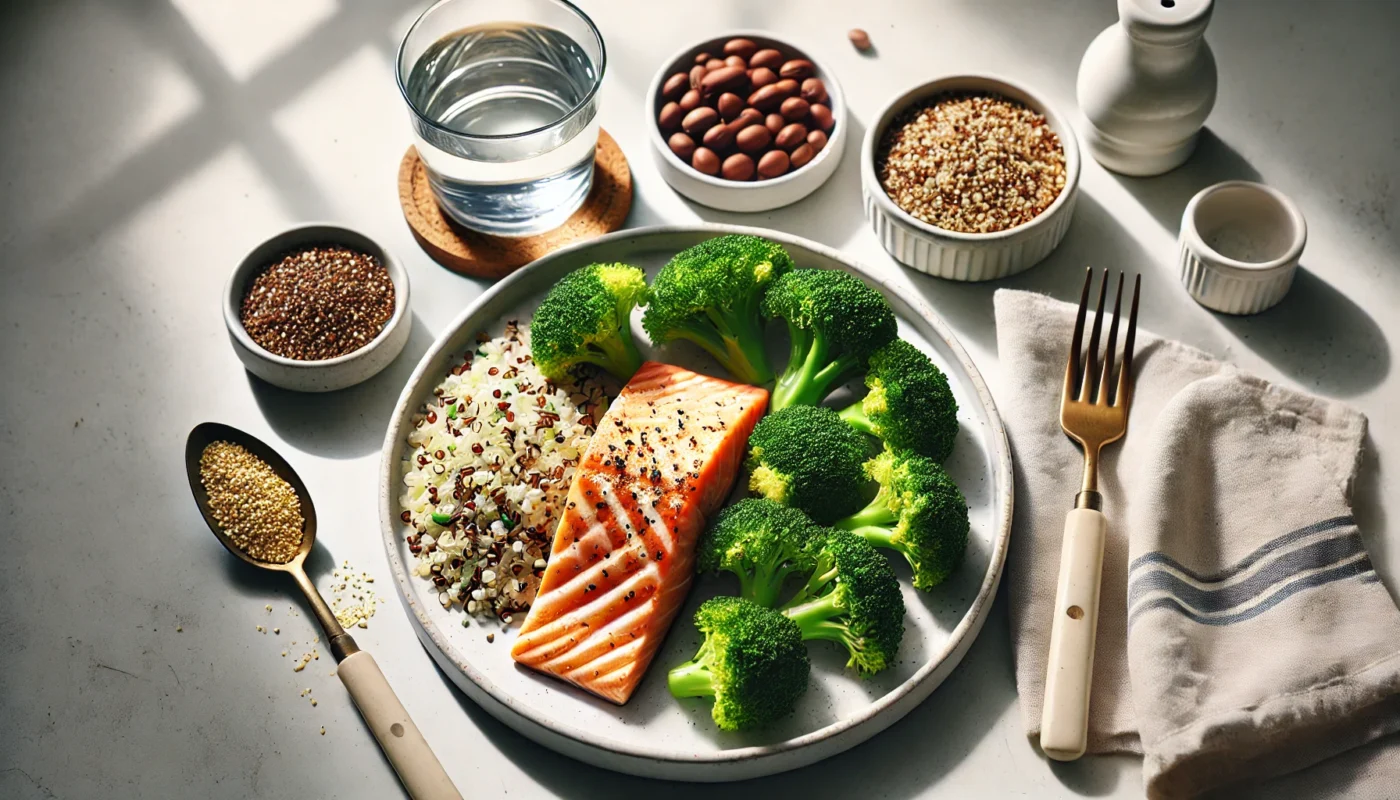Hypertension, or high blood pressure, affects nearly half of all adults globally and is a major contributor to cardiovascular disease, kidney damage, and stroke. Managing hypertension typically involves a combination of medications, dietary changes, and regular physical activity. Recently, intermittent fasting (IF) has gained popularity as a potential strategy for improving various aspects of metabolic and cardiovascular health, including blood pressure regulation. This article evaluates the effectiveness and safety of intermittent fasting for managing hypertension, explores the mechanisms behind its potential benefits, and provides practical guidance for incorporating IF into a hypertension management plan.
You May Also Like: How to Meal Plan for Hypertension: Easy and Effective Recipes
What Is Intermittent Fasting?
Intermittent fasting (IF) is an eating pattern that alternates between periods of fasting and eating. Unlike traditional diets, IF focuses on when to eat rather than what to eat. The most common methods of IF include:
- Time-Restricted Eating (TRE): Eating within a specific window each day, such as 8 hours (e.g., 12:00 PM to 8:00 PM), and fasting for the remaining 16 hours.
- Alternate-Day Fasting (ADF): Alternating between fasting days (consuming little to no calories) and regular eating days.
- 5:2 Diet: Eating normally for five days a week and consuming only 500–600 calories on two non-consecutive days.
- 24-Hour Fasting: Fasting entirely for 24 hours once or twice a week.

The Link Between Intermittent Fasting and Blood Pressure
Research suggests that intermittent fasting may benefit individuals with hypertension by improving cardiovascular health and reducing blood pressure. Below are the primary mechanisms through which IF impacts blood pressure:
1. Weight Loss and Reduced Visceral Fat
Excess weight, particularly visceral fat, is strongly associated with hypertension. Intermittent fasting can promote weight loss by creating a caloric deficit, which reduces the strain on the heart and blood vessels.
- Evidence: A meta-analysis in Obesity Reviews (2020) found that IF was as effective as continuous calorie restriction for weight loss, with participants losing an average of 3–8% of their body weight over 6–12 months. Weight loss is known to lower blood pressure, with a reduction of approximately 1 mmHg in systolic blood pressure (SBP) for every kilogram of weight lost.
2. Improved Insulin Sensitivity
Hypertension often coexists with insulin resistance, a key feature of metabolic syndrome. Intermittent fasting enhances insulin sensitivity, allowing cells to absorb glucose more efficiently and reducing inflammation that contributes to vascular dysfunction.
- Evidence: A study in Cell Metabolism (2018) reported that participants practicing time-restricted eating for 12 weeks experienced improved insulin sensitivity and lower fasting blood sugar levels, which correlated with reductions in SBP.
3. Reduced Oxidative Stress and Inflammation
Chronic inflammation and oxidative stress damage the endothelium (the inner lining of blood vessels), contributing to hypertension. Fasting triggers autophagy, a cellular repair process that removes damaged components and reduces inflammation.
- Evidence: Research published in Nature Reviews Cardiology (2019) found that intermittent fasting reduced markers of oxidative stress and inflammation, potentially improving vascular health and lowering blood pressure.
4. Modulation of the Renin-Angiotensin System
The renin-angiotensin system (RAS) regulates blood pressure by controlling fluid balance and vascular tone. Dysregulation of RAS is a key factor in hypertension. Studies suggest that intermittent fasting may help normalize RAS activity.
Evidence Supporting Intermittent Fasting for Hypertension
Several clinical studies have examined the effects of intermittent fasting on blood pressure, yielding promising results:
1. Time-Restricted Eating
A 2020 study in Hypertension Research investigated the effects of time-restricted eating (16/8 method) on overweight individuals with hypertension. Participants experienced an average reduction of 5 mmHg in SBP and 3 mmHg in diastolic blood pressure (DBP) after 12 weeks.
2. Alternate-Day Fasting
A randomized controlled trial published in JAMA Internal Medicine (2017) compared alternate-day fasting to standard calorie restriction in obese adults. Both groups achieved significant reductions in blood pressure, with the fasting group experiencing a 6 mmHg decrease in SBP.
3. 5:2 Diet
The American Journal of Clinical Nutrition (2018) reported that individuals following the 5:2 diet for six months showed an average reduction of 4 mmHg in SBP, alongside improvements in cholesterol and glucose levels.

Safety and Considerations for Intermittent Fasting in Hypertension
While intermittent fasting offers potential benefits for blood pressure management, it may not be suitable for everyone. Below are important considerations and potential risks:
1. Medication Adjustments
Fasting can affect blood sugar levels and electrolyte balance, which may interact with antihypertensive medications such as diuretics or beta-blockers. Patients should consult their healthcare provider before starting an IF regimen.
2. Risk of Dehydration
Extended fasting periods may lead to reduced fluid intake, increasing the risk of dehydration. This can raise blood pressure temporarily due to reduced blood volume.
3. Nutrient Deficiencies
Poorly planned fasting periods may result in inadequate nutrient intake, which can negatively impact cardiovascular health. A balanced diet during eating windows is essential.
4. Not Suitable for Everyone
Individuals with certain medical conditions, such as diabetes, eating disorders, or pregnancy, should avoid intermittent fasting or seek medical supervision.
Practical Tips for Safe and Effective Intermittent Fasting
To maximize the benefits of intermittent fasting for hypertension while minimizing risks, consider the following tips:
1. Start Gradually
Begin with a mild fasting schedule, such as a 12-hour fasting window, and gradually extend it to 14 or 16 hours as your body adapts.
2. Prioritize Nutrient-Dense Foods
During eating periods, focus on foods that support heart health, such as fruits, vegetables, whole grains, lean proteins, and healthy fats. Avoid processed foods and excessive sodium.
- Example Meal: Grilled salmon with quinoa and steamed broccoli, paired with a fresh green salad and olive oil dressing.
3. Stay Hydrated
Drink plenty of water throughout the day, even during fasting periods. Herbal teas and black coffee (without sugar or cream) are also acceptable.
4. Monitor Blood Pressure
Track your blood pressure regularly to observe how fasting affects your levels. Adjust your regimen as needed in consultation with your healthcare provider.
5. Combine with Physical Activity
Incorporate regular exercise, such as walking, swimming, or yoga, into your routine to enhance the cardiovascular benefits of intermittent fasting.

The Role of Nutritional Supplements in Supporting Hypertension Management
In addition to intermittent fasting, certain nutritional supplements can support blood pressure control and improve vascular health. Below are five evidence-based options:
1. Hibiscus Extract
Hibiscus extract enhances nitric oxide production, improving arterial flexibility. The Journal of Nutrition (2010) found that hibiscus tea reduced SBP by 6 mmHg in individuals with mild hypertension.
2. Magnesium Glycinate
Magnesium promotes relaxation of blood vessels and reduces vascular resistance. A study in Magnesium Research (2016) reported a 5 mmHg reduction in SBP with magnesium supplementation.
3. Coenzyme Q10 (CoQ10)
CoQ10 is a powerful antioxidant that supports endothelial function. A clinical trial in Hypertension Research (2007) demonstrated that CoQ10 supplementation lowered SBP by 11 mmHg.
4. Omega-3 Fatty Acids
Omega-3s reduce inflammation and improve vascular health. A meta-analysis in Hypertension (2018) showed that omega-3 supplementation reduced SBP by 4 mmHg and DBP by 3 mmHg.
5. Beetroot Powder
Beetroot powder, rich in nitrates, enhances nitric oxide availability and promotes vasodilation. A study in Nutrition Journal (2017) found a 4 mmHg reduction in SBP with beetroot supplementation.

Conclusion
Intermittent fasting presents a promising, evidence-based approach to managing hypertension by promoting weight loss, improving insulin sensitivity, and reducing inflammation. While studies suggest significant benefits for blood pressure control, it is essential to adopt fasting practices that align with individual health needs and medical conditions. Combining intermittent fasting with a heart-healthy diet, regular exercise, and appropriate supplementation can provide a comprehensive strategy for improving cardiovascular health. Always consult a healthcare professional before beginning an intermittent fasting regimen, especially if you are taking medication or have underlying health concerns. By integrating these practices thoughtfully, individuals can take proactive steps toward better blood pressure management and overall well-being.
References
- Hypertension Research. (2020). Time-restricted eating and blood pressure control. Hypertension Research. Retrieved from https://www.nature.com/hr
- JAMA Internal Medicine. (2017). Alternate-day fasting and cardiovascular health: A randomized trial. JAMA Internal Medicine. Retrieved from https://jamanetwork.com
- Cell Metabolism. (2018). Intermittent fasting and insulin sensitivity: Mechanistic insights. Cell Metabolism. Retrieved from https://www.cell.com
- Nature Reviews Cardiology. (2019). Autophagy and oxidative stress in intermittent fasting. Nature Reviews Cardiology. Retrieved from https://www.nature.com/nrcardio
- Nutrition Journal. (2017). Effects of beetroot powder supplementation on blood pressure. Nutrition Journal. Retrieved from https://www.biomedcentral.com
Key TERMS for this article:
Hypertension, Intermittent Fasting, Blood Pressure Management, Time-Restricted Eating, Insulin Sensitivity, Autophagy, Cardiovascular Health
Relevant and useful TAGS for this article:
Intermittent Fasting, Hypertension Management, Blood Pressure Control, Time-Restricted Eating, Heart-Healthy Diet, Weight Loss for Hypertension, Nutritional Supplements, Metabolic Health, Fasting Benefits, Cardiovascular Wellness
Important Note: The information contained in this article is for general informational purposes only, and should not be construed as health or medical advice, nor is it intended to diagnose, prevent, treat, or cure any disease or health condition. Before embarking on any diet, fitness regimen, or program of nutritional supplementation, it is advisable to consult your healthcare professional in order to determine its safety and probable efficacy in terms of your individual state of health.
Regarding Nutritional Supplements Or Other Non-Prescription Health Products: If any nutritional supplements or other non-prescription health products are mentioned in the foregoing article, any claims or statements made about them have not been evaluated by the U.S. Food and Drug Administration, and such nutritional supplements or other health products are not intended to diagnose, treat, cure, or prevent any disease.

